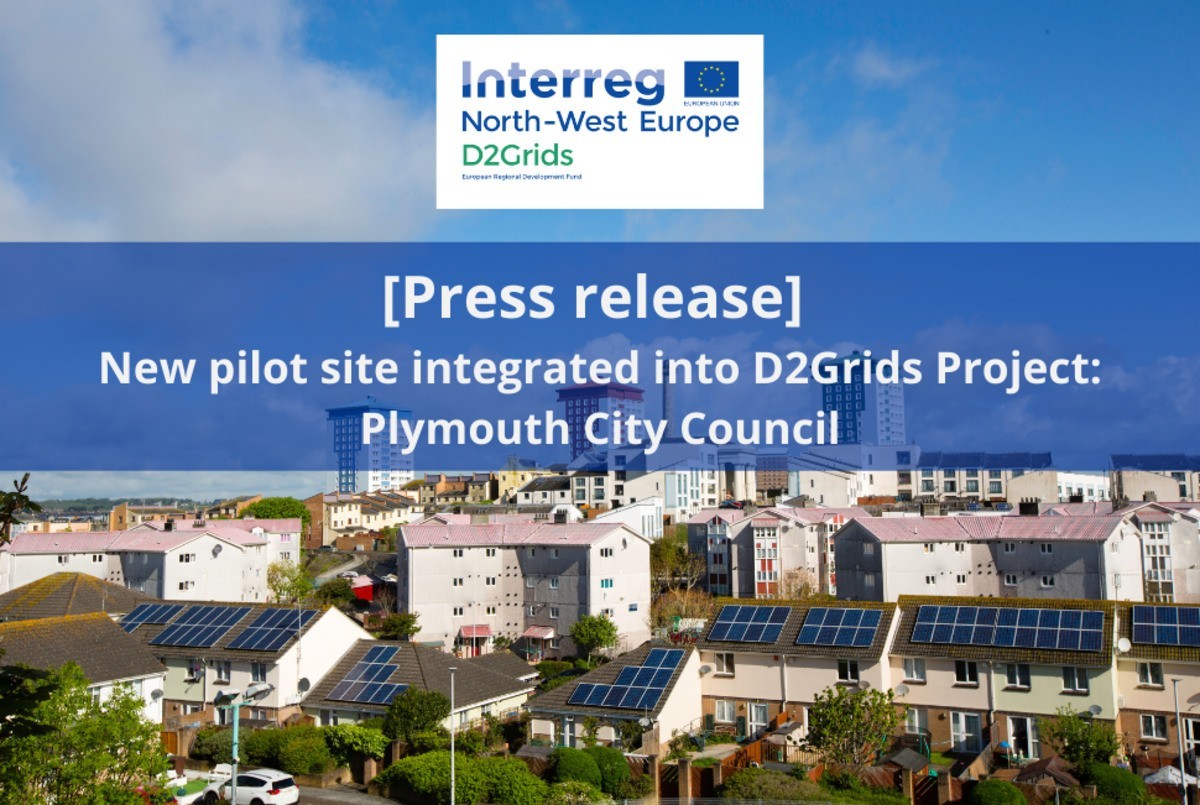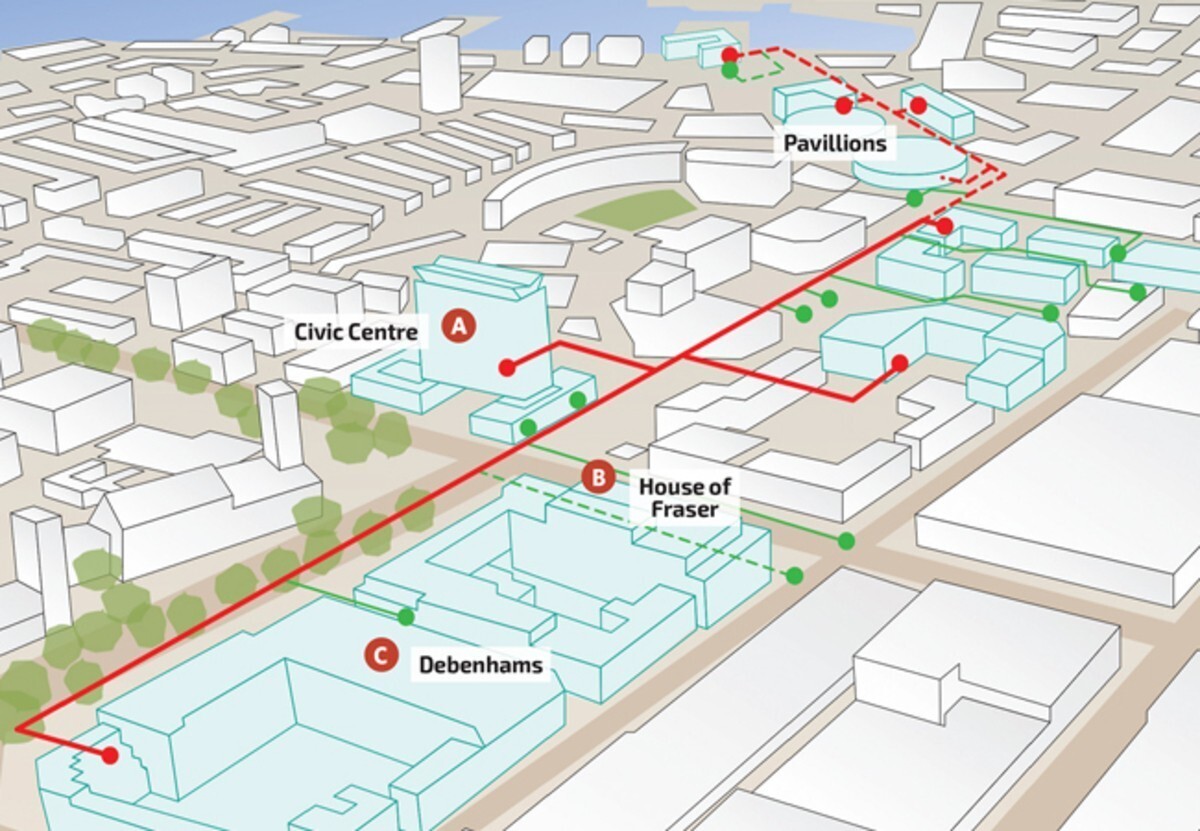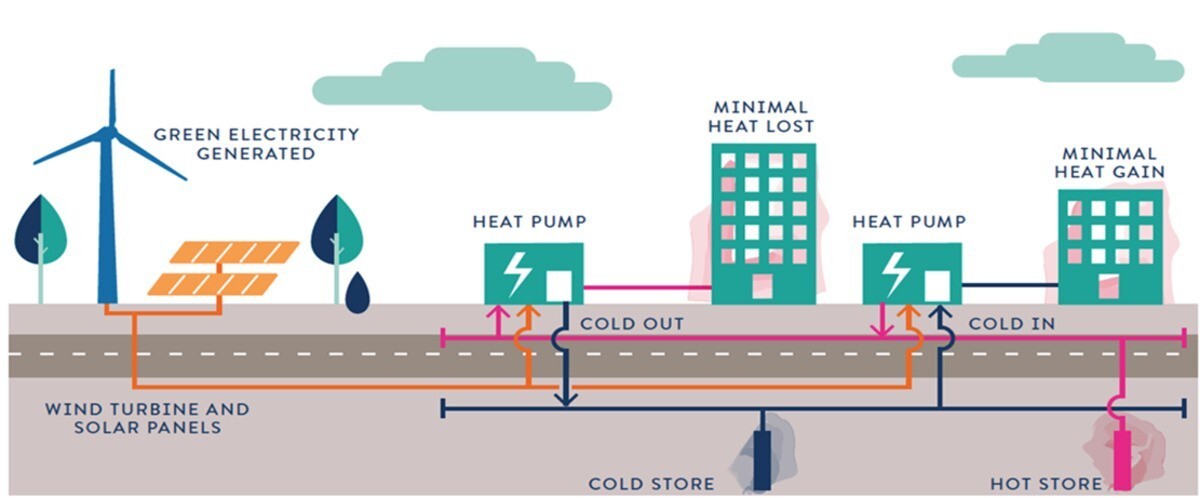5th Generation for Heating and Cooling grids: new pilot site integrated into D2GRIDS Project, Plymouth City Council
pages:newchild- Team Construction 21 Belgique
- /
- friendlytime:the 10-05-2022
- / 212

Plymouth City Council is joining the European project D2GRIDS! This Interreg NWE project aims to develop 5th generation district heating and cooling (5GDHC) in North-West Europe. After working on 4GDHC in the HeatNet project, Plymouth will develop a new pilot site. Joining the D2GRIDS project will help the city make a huge step towards decarbonising its building stock.
Why 5th generation in Plymouth?
Plymouth City Council (PCC) has declared a Climate Emergency and committed to achieving carbon neutrality by 2030, ahead of the national legally binding targets of 2050. The City Council has a Climate Emergency Action Plan and Corporate Carbon Reduction Plan. It is actively working to reduce its own carbon footprint across its portfolio and working with other partners across the city, on a range of areas particularly with heat grids.
Building on the work completed through the preceding HeatNet Interreg NWE project, 5GDHC has great potential for scaling-up and rolling out in the city centre area, both in new developments and existing buildings, with a mix of heating and cooling loads.
5GDHC has great potential for scaling-up and rolling out in the city centre area, both in new developments and existing buildings, with a mix of heating and cooling loads.
Joining D2GRIDS: a step forward for the city
The D2Grids pilot will build on the initial work completed through the HeatNet NWE project. It allowed the city to map out heating and cooling loads, identify opportunities for renewable heat sources and develop the concept design of a 5GDHC network. Involvement in HeatNet also resulted in the delivery of infrastructure in Millbay, but also in drilling test wells into the principal aquifer in the underlying limestone within this area.
In one cluster (Civic Centre), as well as serving public buildings, the pilot aims to expand the heat network infrastructure to supply a range of public buildings, including 144 residential units, a commercial area and a theatre with low carbon heat (that can transition to zero).

Image credit: Buro Happold
In another, at Millbay the proposals would supply social residential dwellings (147 units), a hotel, office block and events arena with zero carbon heating & cooling, delivering high levels of comfort at a competitive price.
Renewable energy (alongside waste heat) will be derived from a combination of ground source, marine water and air source using heat pumps (decentralised and centralised).
The pilot aims to expand the heat network infrastructure to supply a range of public buildings, including 144 residential units, commercial area and a theatre with low carbon heat (that can transition to zero).
D2Grids involvement will help Plymouth demonstrate the 5GDHC approach through the pilot.
This pilot will help to demonstrate how the 5GDHC approach can be applied to the initial areas, and inform the proposals to expand, with a review of the masterplan in this area. It will also demonstrate how different sources of renewable heat can be deployed alongside exploring opportunities to use waste heat. Some of the buildings have historic designations and are challenging to reduce their operating temperatures, although a number of measures are being taken to try to achieve this.

Image credit: Buro Happold
As 5GDHC networks use lower temperatures, this brings an opportunity to use waste heat and a greater range of renewable heat sources, such as ground source. Plymouth has already identified the City Centre as a ‘Low Temperature Building Zone’ to try to support this. The cooling aspect of 5GDHC is a bonus, particularly as the climate warms. The approach can deliver cooling in a more efficient way than a traditional district energy scheme, which gives some flexibility and resilience thanks to the business model, which is not just focused on heat.
Plymouth City Council has also been asked by the Government Department for Business, Energy and Industrial Strategy to participate in a national pilot to test Heat Network zoning and is keen to share any learning about the promotion and development of smarter fifth generation heat networks as part of this. Nordic Energy is also involved in this pilot.
To know more about how 5GDHC is applied in Plymouth city, read the press release you’ll find below!
Understand better how the project started and integrated the Heatnet project
contact[a]5GDHC.eu
